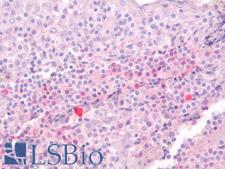Login
Registration enables users to use special features of this website, such as past
order histories, retained contact details for faster checkout, review submissions, and special promotions.
order histories, retained contact details for faster checkout, review submissions, and special promotions.
Forgot password?
Registration enables users to use special features of this website, such as past
order histories, retained contact details for faster checkout, review submissions, and special promotions.
order histories, retained contact details for faster checkout, review submissions, and special promotions.
Quick Order
Products
Antibodies
ELISA and Assay Kits
Research Areas
Infectious Disease
Resources
Purchasing
Reference Material
Contact Us
Location
Corporate Headquarters
Vector Laboratories, Inc.
6737 Mowry Ave
Newark, CA 94560
United States
Telephone Numbers
Customer Service: (800) 227-6666 / (650) 697-3600
Contact Us
Additional Contact Details
Login
Registration enables users to use special features of this website, such as past
order histories, retained contact details for faster checkout, review submissions, and special promotions.
order histories, retained contact details for faster checkout, review submissions, and special promotions.
Forgot password?
Registration enables users to use special features of this website, such as past
order histories, retained contact details for faster checkout, review submissions, and special promotions.
order histories, retained contact details for faster checkout, review submissions, and special promotions.
Quick Order
PathPlusTM CD3E Antibodies
CD3e, epsilon (CD3E) is a polypeptide subunit of the T-cell receptor-CD3 complex, which plays an important role in T-cell development and the adaptive immune response. Along with its associated CD3 subunits, it couples activation of T-cell receptors by antigen-presenting cells to intracellular signal transduction pathways. Mutations in the CD3E gene cause immunodeficiency, and the gene may be linked to susceptibility to type 1 diabetes in women. CD3E is expressed in T cells and is found in the bone marrow and tissues of the immune system such as lymph node, spleen, appendix, and tonsil. CD3E antibodies are used to identify T cells in benign and malignant disorders.
References: Proc Natl Acad Sci USA. 1998;95(25):14909-14914. doi: 10.1073/pnas.95.25.14909. Nat Genet. 1993;3(1):77-81. doi: 10.1038/ng0193-77. J Clin Invest. 2004;114(10):1512-1517. doi: 10.1172/JCI22588. Clin Exp Immuno. 1991;83(1):69-73. doi: 10.1111/j.1365-2249.1991.tb05590.x.
1 PathPlusTM Antibody

☰ Filters
Products
Antibodies
(1)
Type
Primary
(1)
Target
CD3E
(1)
Application
IHC-P
(1)
Host
rabbit
(1)
Product Group
PathPlus Cancer
(1)
PathPlus Cancer Pathology
(1)
Clonality
polyclonal pc
(1)
Format
Unconjugated
(1)
Publications
No
(1)

Cancer Pathology
Cancer
Fast Shipping
CD3E Rabbit anti-Human Polyclonal Antibody
IHC-P
Unconjugated
50 µg/$395
Viewing 1-1
of 1
product results











